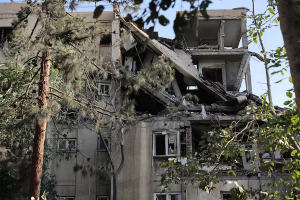Trump acted in judicious way in Iran attacks, Netanyahu says
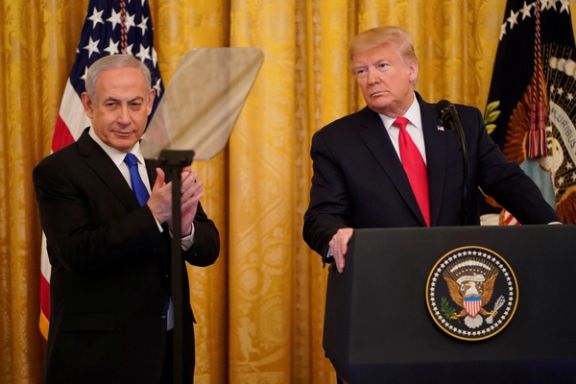
Israeli Prime Minister Benjamin Netanyahu said that US President Donald Trump acted in a judicious way in ordering attacks on Iran’s nuclear facilities in June.

Israeli Prime Minister Benjamin Netanyahu said that US President Donald Trump acted in a judicious way in ordering attacks on Iran’s nuclear facilities in June.
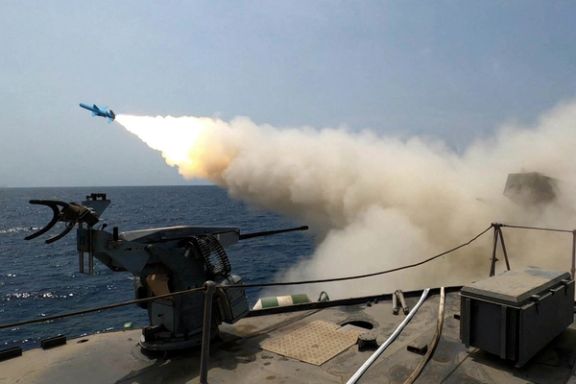
Iran’s navy test-fired a range of cruise missiles during large-scale drills on Thursday, striking surface targets in the Gulf of Oman and northern Indian Ocean, state media reported.
The exercises, dubbed Sustainable Power 1404, featured the simultaneous use of Nasir, Qadir, and Ghader anti-ship cruise missiles launched from coastal batteries and warships, including the Genaveh missile boat and the Sabalan destroyer.
“These missiles, with different ranges, successfully hit their designated targets at sea,” the semi-official Tasnim news agency said. Officials described the systems as radar-evading, high-precision and designed to counter both naval and coastal targets.
The drills took place around a month after the Iran-Russia drill under the name Casarex 2025, which took place in Iran's northern waters -- the Caspian Sea.
Marking National Defense Industry Day, Iran’s Defense Ministry said the country had advanced “from the peak of dependence on foreigners to the heights of self-sufficiency and power” in the missile, weapons and space sectors.
It warned that “any miscalculation in the region will be met with a very strong response from Iran’s powerful armed forces.”
The ministry said the 12-day war in June had demonstrated the effectiveness of Iranian weaponry, adding that Tehran’s defense industry will continue to expand without a moment of hesitation.
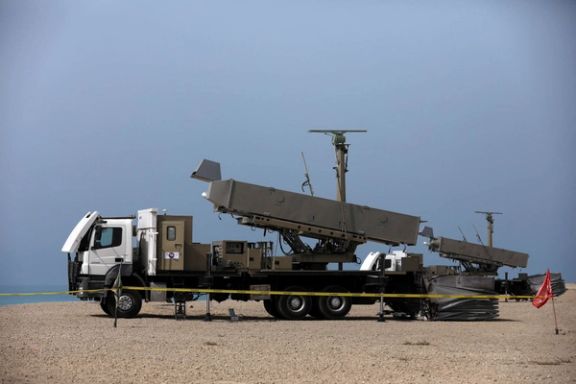
Army Navy vs Guard Navy
Iran maintains two distinct naval forces under separate command structures: the conventional Islamic Republic of Iran Navy -- a force within the traditional army --and the Islamic Revolutionary Guard Corps Navy.
While both are tasked with defending Iranian interests at sea, their missions, capabilities and areas of operation differ, according to a Defense News analysis.
“The IRGC Navy and the Iranian Navy have two separate command structures. While some of their responsibilities overlap, the primary difference is the methods and strategies of operation,” analyst Sina Azodi told Defense News.
He added that the IRGC Navy emphasizes asymmetric operations, relying on fast boats, missile-equipped vessels and hit-and-run tactics, while the traditional Navy deploys larger platforms such as frigates, corvettes and submarines.
According to Mohamed al-Kenany, head of the military studies unit at the Cairo-based Arab Forum for Analyzing Iranian Policies, another key distinction is geography.
Iran’s navy patrols the Gulf of Oman, the Indian Ocean and the Caspian Sea, while the Revolutionary Guard controls the Persian Gulf and the Strait of Hormuz, where it has seized Western vessels and shadowed US warships during past tensions.
Al-Kenany added that the IRGC’s use of naval mines and swarms of small craft makes its anti-access strategy in the Persian Gulf highly effective, while the conventional Navy remains constrained by aging 1970s-era frigates and corvettes and sanctions that block modernization.
Since 1979, the United States has imposed sanctions on Iran that restrict access to advanced military technology, forcing Tehran to rely on indigenous development and adaptations of older systems.
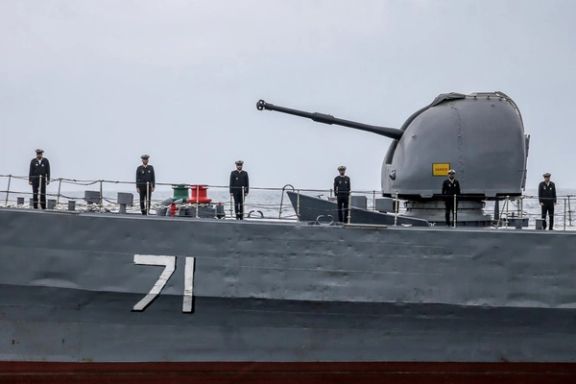
Top commanders call for modernization
Armed Forces Chief of Staff Major General Abdolrahim Mousavi said Iran’s only guarantee of security was to continually upgrade its systems.
“The only way to shield the country from threats is to enhance deterrence and modernize our ground, naval, aerospace, air defense, cyber and electronic warfare capabilities,” he said in a message to Defense Minister Brigadier General Aziz Nasirzadeh.
Nasirzadeh himself told reporters on Wednesday that Iran had developed a new generation of missiles with greater capabilities than those used in the June conflict.
“The missiles we used in the 12-day war were built several years ago. Today we possess missiles with far better capabilities, and if the Zionist enemy embarks on another adventure, we will certainly use them,” he said.
He added that Israel’s missile-defense systems, including the US-made THAAD, Patriot, Arrow and Iron Dome, had proven ineffective. “In the early days, about 40% of our missiles were intercepted, but by the end of the war, 90% were striking their targets,” he said.
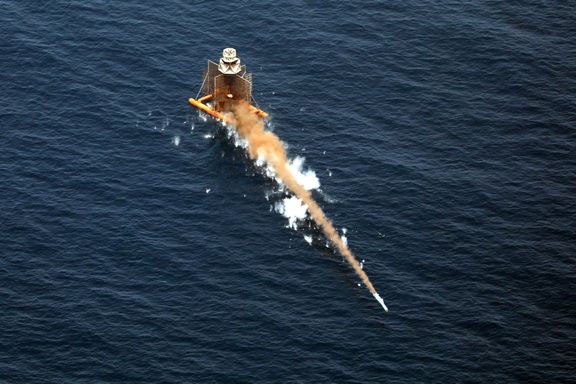
'War is not over'
Earlier in the week, Senior Revolutionary Guards general Yahya Rahim Safavi, now top adviser to Supreme Leader Ali Khamenei, dismissed the June ceasefire as temporary.
“We are not in a ceasefire, we are in a stage of war. No protocol, regulation, or agreement has been written between us and the US or Israel. I think another war may happen, and after that, there may be no more wars,” he said.
Safavi argued that Iran must continue to expand its diplomatic, cyber, missile and drone capabilities. “In the system of nature, the weak are trampled. Therefore, Iran must also become strong,” he said.
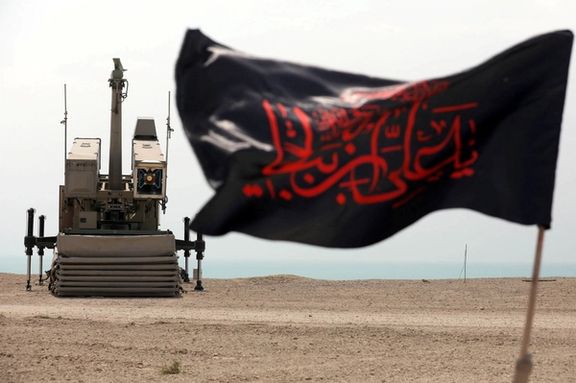
Israel vows readiness
Israel’s military chief Lt. Gen. Eyal Zamir said earlier this month the June campaign had been a preemptive strike to eliminate an “emerging existential threat” from Iran.
“If necessary, we will know how to act again with precision, intensity and lethality,” he said.
Israel launched surprise strikes on June 13 that killed senior Iranian commanders and nuclear scientists and damaged nuclear and air defense sites. Iran says 1,062 people were killed, including 786 military personnel and 276 civilians.
Iran retaliated with missile and drone attacks that killed 31 civilians and one off-duty soldier in Israel. The conflict ended with a US-brokered ceasefire on June 24.
Both Tehran and Tel Aviv claimed victory in June, but the rhetoric since then has underscored the fragile truce and the risk of a renewed confrontation in the region.
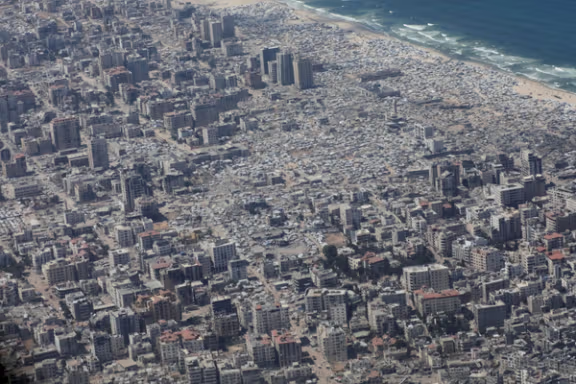
The US State Department has dismissed an Iranian-American press officer after internal disputes over how to characterize Israeli policies in Gaza, the Washington Post reported on Wednesday, citing US officials and documents it reviewed.
The firing of Shahed Ghoreishi on Monday came days after a debate about whether to issue a statement that read, “We do not support forced displacement of Palestinians in Gaza,” the Post said.
Ghoreishi drafted the line, which was vetoed by department leadership with instructions to “cut the line marked in red and clear,” according to a memo dated last week.
The Post said Ghoreishi also recommended expressing condolences after the targeted killing of Al Jazeera journalist Anas al-Sharif and several other journalists in Gaza City.
Israel said al-Sharif was a Hamas member, an allegation denied by Al Jazeera.
“We mourn the loss of journalists and express condolences to their families,” Ghoreishi proposed, but State Department leadership rejected the idea in an August 10 email, saying, “No response is needed. We can’t be sending out condolences if we are unsure of this individual’s actions.”
Ghoreishi told the Post he was given no explanation for his dismissal, which the State Department was not required to provide due to his contractor status.
“Despite a strong reputation and close working relationship with many of my colleagues, I was unable to survive these disputes,” he said, adding that the language he recommended had previously been cleared since President Donald Trump took office in January.
State Department spokesperson Tommy Pigott declined to discuss the details. “We do not comment on leaked emails or allegations,” he told the Post. “Federal employees should never put their personal political ideologies ahead of the duly elected president’s agenda.”
US officials said the firing has sent a chilling message inside the department that deviations from pro-Israel language will not be tolerated, even when they align with past US policy, the Post reported.
The Post added that Trump’s language on Israel has varied from critical to strongly supportive, allowing different factions to claim alignment with him.
On Wednesday, Ghoreishi faced criticism from far-right activist Laura Loomer, an informal Trump adviser, who called him a “Pro-Iranian Regime Jihadi Muslim Tied To NIAC.” Ghoreishi said he interned at the National Iranian American Council in 2013.
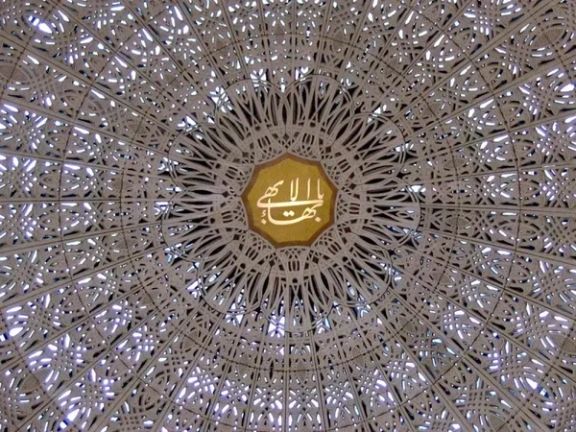
Authorities in the central Iranian city of Isfahan have begun seizing homes and assets from members of the Bahá’í religious minority by text message—an unprecedented move a community spokesperson called “economic strangulation” that has mostly targeted women.
“This is the first time we know of that the government has used text messages to order confiscations,” Farhad Sabetan, spokesperson for the Baha’i International Community (BIC) told Iran International.
“What we are witnessing is nothing less than economic strangulation of the Baha’i community—families are deprived of their livelihoods overnight, without due process, without even a court order.”
Bahais constitute the largest religious minority in Iran and have faced systematic harassment and persecution since the Islamic Revolution of 1979.
Iran does not recognize the Baha’i faith as an official religion, unlike Christianity, Judaism, or Zoroastrianism. Authorities label it a “cult” with alleged foreign ties—charges its followers reject.
The BIC said the seizures included homes, vehicles, and other assets, carried out under Article 49 of Iran’s constitution, a clause designed to reclaim property gained through illicit activities such as theft or drug trafficking. In practice, Sabetan said, it is being misused “to plunder the possessions of citizens who have committed no crime other than being Baha’i.”
According to the BIC, families were ordered by text to present themselves to court or face arrest. Some later discovered blocked bank accounts, frozen business transactions, and restrictions on selling property. In several cases, court files were not recorded in Iran’s official judicial notification system, preventing defendants and their lawyers from reviewing them.
The confiscations come as Iranian authorities step up pressure on Baha’is, accusing them without evidence of spying for Israel. While thousands of Baha’i-owned properties have been seized since the 1979 revolution, rights groups say the new reliance on digital notices reflects a more brazen, impersonal stage of repression.
Sabetan said that the majority of those targeted in Isfahan are women—many engaged in teaching and community service. “It may not be coincidental,” he said. “After the Women, Life, Freedom movement, the government has been cracking down on women broadly. Now Baha’i women are being targeted in the same way—mothers and educators denied the ability to care for their families or live normal lives.”
According to the US-based Human Rights Activists News Agency (HRANA), Baha’is account for more than 70 percent of all documented violations against religious minorities in Iran over the past three years. At least 284 Baha’is have been arrested in the past five years, receiving a combined 1,495 years in prison sentences.
“What the Iranian government is doing amounts to a gradual death sentence,” Sabetan said. “They may not execute Baha’is as they did in the early years of the revolution, but by stripping them of work, property, and dignity, they are trying to erase our community.”
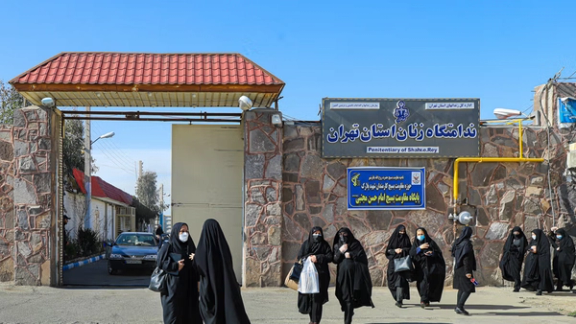
A reformist-leaning Iranian Telegram channel on Wednesday published the names of 64 women it said are jailed for political reasons, challenging Iran's judiciary chief who said no more than five such detainees exist.
“This list concerns female political prisoners in Gharchak prison and a handful of other known cases. It does not cover other cities or prisons across the country,” Tahkim Mellat said in its statement, adding that the document was presented solely for civic and legal follow-up.
Qarchak Prison is a women’s facility southeast of Tehran, known for holding political prisoners in poor and overcrowded conditions, according to rights groups.
The announcement came after judiciary chief Gholamhossein Mohseni Ejei said he had asked political groups to provide names of detainees.
Ejei argued that reformist figures had admitted identifying “no more than three to five” prisoners, calling on them to announce this publicly.
Yet Tahkim Mellat countered that in Gharchak prison alone more than 60 women are held for political activity.
'No transparency'
The names include Raheleh Rahimi Pour, a 75-year-old suffering from a brain tumor, and Kobra Beigi, 70, who was excluded from a 2023 amnesty.
Several other political prisoners who face death sentences were also named including, Sharifeh Mohammadi, Pakhshan Azizi, and Varisheh Moradi.
“The demand for the release of political prisoners had previously been raised by individuals and groups within civil society as a political necessity; however, until now, the government and political parties have taken no action to recognize or pursue the rights of more than just a few political prisoners,” reads the statement by the outlet.
“This silence and lack of transparency by political officials has resulted in a large number of political prisoners remaining in detention without adequate support or attention.”
Calls for accountability
Responding last week to Ejei’s remarks, veteran reformist commentator Emadeddin Baghi said the judiciary “certainly does not need to request a list from others if it wishes to prepare a more complete and accurate one.”
Independent civic associations, if not restricted, could provide more reliable data, Baghi added.
“What matters,” Baghi said, “is to set clear criteria — such as prioritizing prisoners near the end of their sentences, those whose convictions are disproportionate, or those eligible for parole under the law — rather than debating whether the number is five or sixty.”
Tahkim Mellat said officials have a duty to respond to the list it published.

Iran’s communications minister confirmed on Wednesday that widespread disruptions to GPS and internet services were linked to “security considerations” and said raising tariffs for mobile operators had become unavoidable to sustain services.
“Disruptions in frequency bands and GPS signals are due to security concerns and the possible presence of drones,” Sattar Hashemi told reporters after a cabinet meeting, according to state media. “Naturally, this has created problems in providing services to the people. We are negotiating and working step by step to resolve them.”
Hashemi said Iran would not rely on a single technology, when asked about switching to China’s BeiDou navigation system. “We will naturally use all capacities that exist in the world. Sole reliance on one technology is not in our interest,” he said.
He also addressed mounting pressure from mobile operators to increase prices, noting that years of frozen tariffs and rising costs had left them struggling to maintain services.
“The significant increase in operating costs and wages, the higher price of imported equipment, and rising electricity bills have pushed operators to seek tariff reviews. Revising tariffs is essential for maintaining service quality and carrying out development projects,” he said.
The comments follow warnings from Irancell, Iran’s second-largest operator, that without a 70% rise in tariffs the country could face daily internet blackouts of up to three hours.
“If tariffs are not adjusted, operators will not be able to invest, and improving internet quality will be impossible,” CEO Alireza Rafiei said earlier this week, warning that internet outages could soon resemble Iran’s routine power cuts.
Iran has been grappling with deteriorating connectivity since a 12-day war with Israel in June. Internet speeds have slowed, blackouts have multiplied, and GPS interference has continued across major cities, disrupting everything from ride-hailing services and delivery apps to logistics firms and automated calls to prayer.
Ordinary Iranians say the disruptions have upended daily routines. “Even ordering food has become a pain,” a Tehran resident told Iran International. “Drivers can’t find you or show up at the wrong place. By the time it gets to you, it’s cold or your lunch break is over.”
Officials have defended the disruptions as necessary for national defense, arguing GPS jamming can prevent drones and guided missiles from hitting their targets.
“Some of the disruptions to the GPS system originate from within the country for military and security purposes,” Deputy Minister Ehsan Chitsaz said last month, adding Iran was exploring BeiDou as an alternative.
A report by Tehran’s E-Commerce Association earlier in the month ranked Iran 97th out of 100 countries for connectivity, calling its internet “unreliable, restricted and slow.” The group said more than 10 million online businesses had been damaged by systemic disruption.
Hashemi acknowledged the crisis had hurt businesses but insisted raising tariffs and diversifying technology were the only viable paths forward. “We must preserve the ability of operators to develop networks,” he said. “That requires revising tariffs and using every global capacity available.”
Speaking to the TRIGGERnometry podcast aired Wednesday evening, Netanyahu said: “President Trump has proven an exceptional, exceptional friend of Israel, an exceptional leader. And he did exactly the right action, the precise action using American power, and came in, I think, in a very forceful but judicious way."
Trump ordered strikes on three of Iran’s main nuclear sites, calling the program “obliterated,” but experts dispute that, saying bombs likely failed to penetrate underground halls, and with UN inspectors barred, the true damage is uncertain.
The long-time Israeli premier told the show that the war on Iran was a preemptive attack after years of threats to annihilate the Jewish state.
Israel launched surprise strikes on June 13 that killed senior Iranian commanders and nuclear scientists and damaged nuclear and air defense sites. Iran says 1,062 people were killed, including 786 military personnel and 276 civilians.
Netanyahu said, “I'll tell you the lessons we, the Jewish people, took from history. Number one is when somebody says they're going to annihilate you, take it seriously. Don't wait for them to do it, but prevent them, as we did in the remarkable action that we took against Iran, because they were developing nuclear weapons, and they were going to have 20,000 ballistic missiles, one tonne ballistic missiles... that would obliterate us."
Netanyahu said the October 7 attack was part of “the Iranian terror axis,” describing how Tehran built a network of proxies to annihilate Israel through a simultaneous assault: Hamas from the south, Hezbollah from the north, waves of ballistic missiles and rockets from Lebanon, Gaza, the Houthis in Yemen, Shiite militias in Iraq and Syria, and even Iran itself.
He added that Hamas’s October 7, 2023 attack on Israel came prematurely, disrupting Iran’s broader plan for a coordinated assault by all its regional allies.
“This was meant to be a simultaneous surprise attack that would hobble Israel and destroy it. I think what happened was that they [investigators] discovered that, basically Hamas fired too soon. They didn't coordinate," he added.
